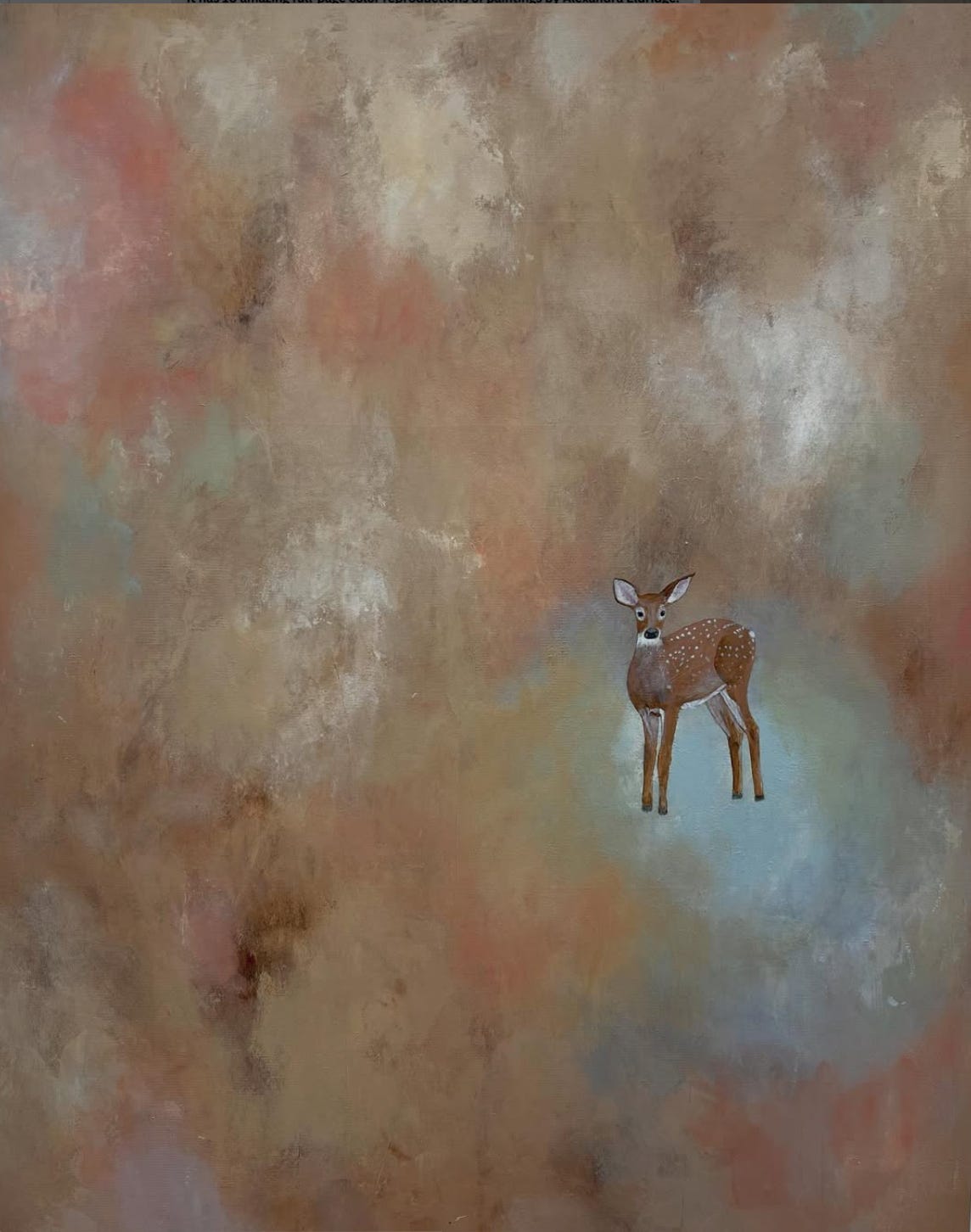Narrated Essay: Knitting Undercover
on equinox, what man has made of man, and the shelter of soft aliveness
A handful of spots remain for From Root to Blossom, a spring retreat at an exquisite guest ranch near Aspen, CO. Deep rest & relaxation, nature medicine (peak wildflower season!), yoga & meditation, bonfires, delish organic meals, & star-filled nights. May 29 - June 1, 2025. Payment plans + $500 savings on shared lodging.

Today is the Vernal Equinox. We’re promised incremental victories of light. But early spring is no darling — not here in the high desert. Here, she can be chafing and mercurial; she can show up in sputtering, immature fits and freezes; in mean winds that would cut down the most tender and flower-faced among us without reason.
Earlier this week, the sky howled and turned the color of mud at mid-day. Cell phones blared out public safety warnings. Dust agitated at every seam.
What’s a nervous system to do? Have mercy on the tender-hearted, Lord — on the dream of apricots and cherries, and the boy at school pickup who is rubbing and rubbing his nose against the back of his chapped hand.
Like you, I am learning to find refuge. I am learning to take shelter in the soft aliveness of my body; remembering in adulthood what came so easily and imaginatively to my younger self — how to build a fort, how to tuck into a small world of my own making.
So, I gather a reading light, a ball of yarn, knitting needles, and a poetry collection, and I tent a wool blanket over my head to hole up for the duration.
One thing I know for sure is how a poem can serve like the keel of a boat, offering stability and resistance against sideways forces. A poem — a few words that, when linked together at an angle just so, can carry us into and beyond their meaning. And so it is with this needfulness, under a blanket in my living room, that I come to Wordsworth’s “Lines Written in Early Spring,” a meditation he wrote in 1798 on the joyful, interwoven consciousness of nature — a “thousand blended notes” of birdsong — and humanity’s grievous failure to remember its place under the canopy of all things.
In the grove where the speaker sits, twigs “spread out their fan,” flowers “enjoy the air,” and Nature, personified, is a force with a “holy plan.” But human beings, the speaker laments, have lost the splendrous sensibilities of spring: “If such be Nature’s holy plan / Have I not reason to lament / What man has made of man?”
It occurs to me that man has done many good things with his hands. I am thinking now of a live performance of Rachmaninoff's Piano Concerto No. 2, or the sweater that Wendy-from-the-yarn-shop just masterfully knitted, or the perfectly packaged mini-waffles my friend Ted brought back from a recent trip to Japan.
But much of the time, we get things at least half-wrong. Like seed-creatures, we struggle to find our way upward through hard ground. We move too quickly, unaware of our conditions, and make mistakes. We forget to pause and remember the purpose of our unearthing. And we forget the interweave, the garden of our original belonging.
So, I’m teaching myself how to knit. Novice that I am, it’s awkward work. It’s near-in. I tink (a new word for me, a semordnilap that refers to the act of un-stitching) almost as often as I knit. I struggle to position my hands, to maintain the right angle, I poke around and lose count and then I have to begin again.
And in all this seeming progress and unraveling, as I return to mistakes embedded long ago, a new pattern — peaceful and even elegant — is steadily emerging. Oh, nervous system, dear friend. I am un-stitching and stitching myself back together again. I am braiding threads of myself into an artwork of my own making, which is weaving me back into something greater than my own making. And when the thing is ready, I will hold it up in wonder. I will hold it to my cheek.





Beautiful!!